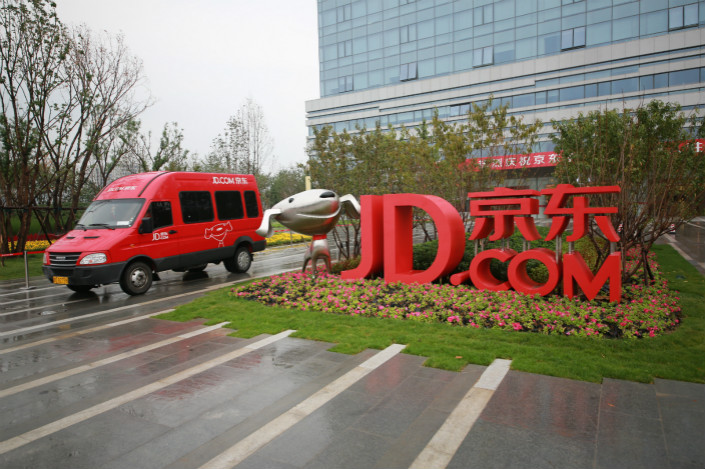JD.com Tries Second Courtship With Mom-and-Pop Shops

Three years after booting them out, e-commerce giant JD.com Inc. is quietly welcoming back thousands of mom-and-pop merchants to its online shopping malls, vowing to tackle the quality issues that prompted it to abandon its previous efforts with the group.
The move takes direct aim at arch-rival Alibaba Group Holding Ltd., whose wildly popular Taobao online mall allows thousands of such small shops to sell goods to consumers out for bargains or hard-to-find products. Alibaba now has a lock on the lucrative market in China, often referred to as consumer-to-consumer (C2C) sales, a model pioneered by U.S. internet veteran eBay Inc.
JD.com operates almost exclusively in the business-to-consumer (B2C) arena, where larger, licensed merchants sell products to consumers. It sells its own products directly to consumers, and also allows large store operators and brands to set up third-party shops in its online malls.
Under its new program, JD.com will open its platform to smaller shops by initially targeting artisans, designers and other makers of distinctive products, the company told Caixin. JD.com will use a certification program for merchants entering the platform, and will conduct reviews of their performance and inspect the quality of their products. It officially rolled out guidelines for the program last week.
Poor product quality and service standards have been two of the biggest problems for the operators of C2C marketplaces, which can become havens for misleading advertisements and counterfeit goods. JD.com previously entered the space in 2014 when it acquired the e-commerce business of Tencent Holdings Ltd. shortly after the pair agreed a major equity tie-up. But just a year later it quietly shuttered Paipai, the C2C platform it acquired in that deal, citing quality and service issues.
Despite such difficulties for operators, such marketplaces are popular among consumers because their huge diversity makes them the equivalent of online flea markets filled with unusual products and bargains. The value of goods traded on Alibaba’s C2C Taobao marketplace topped 2.2 trillion yuan ($331 billion) in the 12 months through March this year, making it the company’s largest single e-commerce platform for that period in terms of gross merchandise value.
Contact reporter Yang Ge (geyang@caixin.com)

- 1Cover Story: China Carves Out a Narrow Path for Offshore Asset Tokenization
- 2Drownings Shake Chinese Enthusiasm for Travel to Russia
- 3Over Half of China’s Provinces Cut Revenue Targets
- 4Li Ka-Shing’s Port Empire Hit by Forced Takeover Amid Panama Legal Dispute
- 5In Depth: China’s Mutual Fund Industry Faces Overhaul After a Banner 2025
- 1Power To The People: Pintec Serves A Booming Consumer Class
- 2Largest hotel group in Europe accepts UnionPay
- 3UnionPay mobile QuickPass debuts in Hong Kong
- 4UnionPay International launches premium catering privilege U Dining Collection
- 5UnionPay International’s U Plan has covered over 1600 stores overseas






